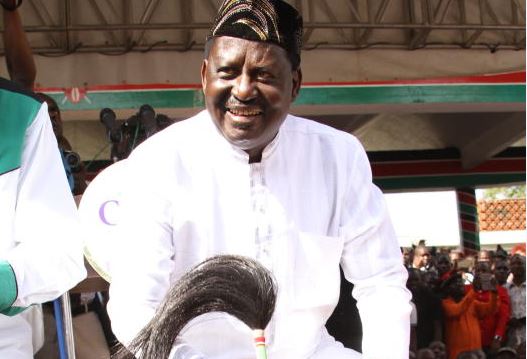
The American poet Henry Wadsworth Longfellow (1807-1882) has told us that the lives of great men remind us to make our own lives sublime. Such notable lives urge us to make our own marks in the sands of time before departing into the next world. The older we grow, the more significant these thoughts get.
In this week of his 75th birthday, ODM leader Raila Odinga may want to reflect on great lives in history, and especially the older great lives. He may wish to mirror himself and his dreams against these great lives. What does tomorrow hold in store for him?